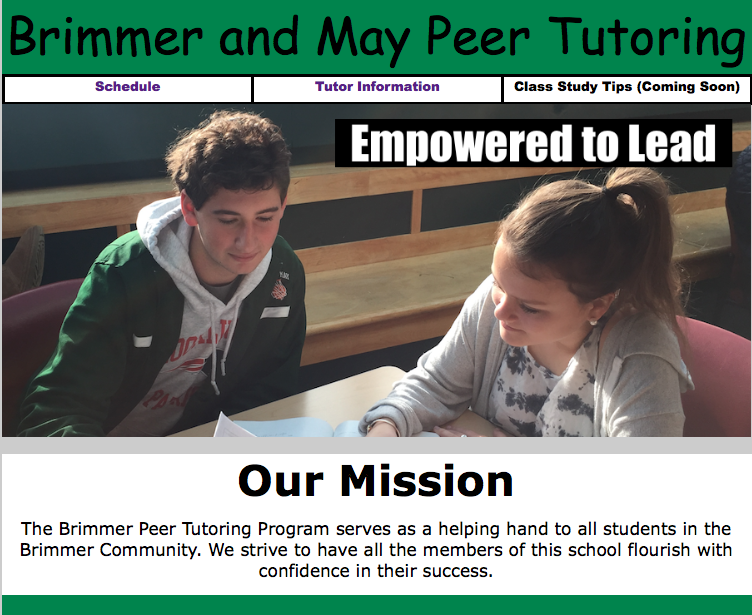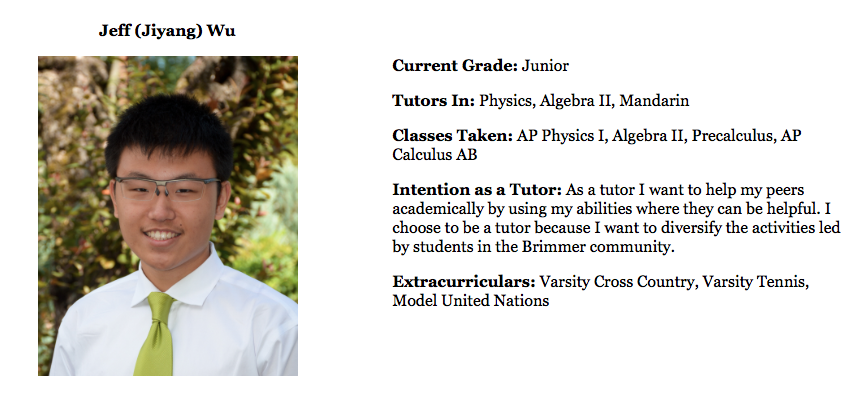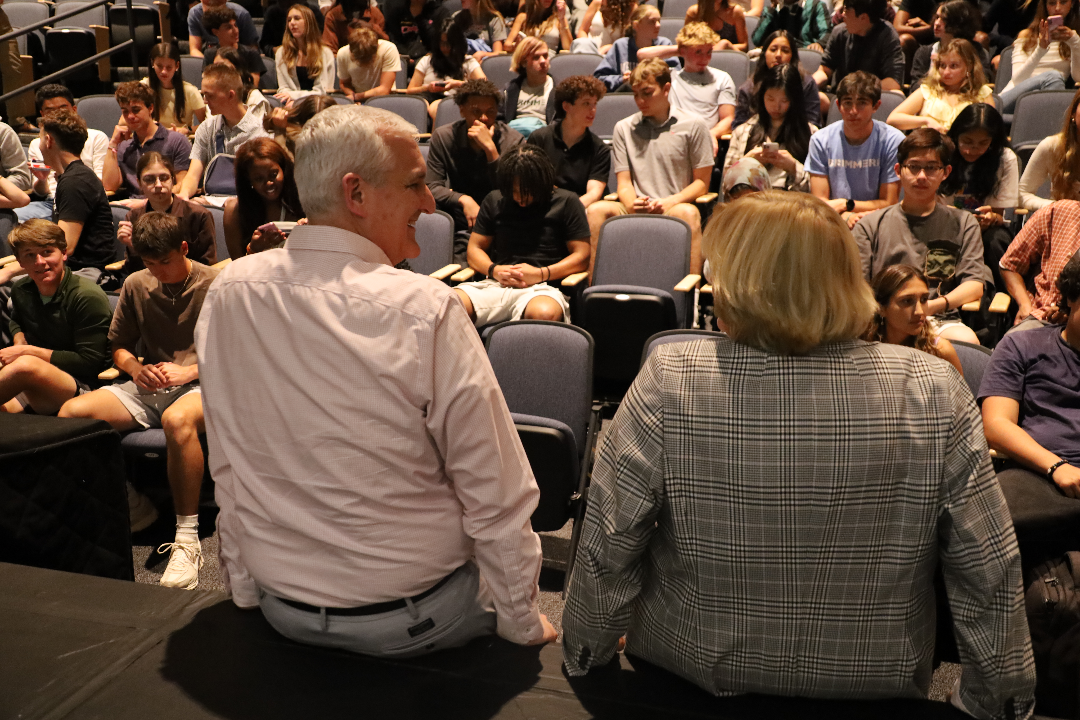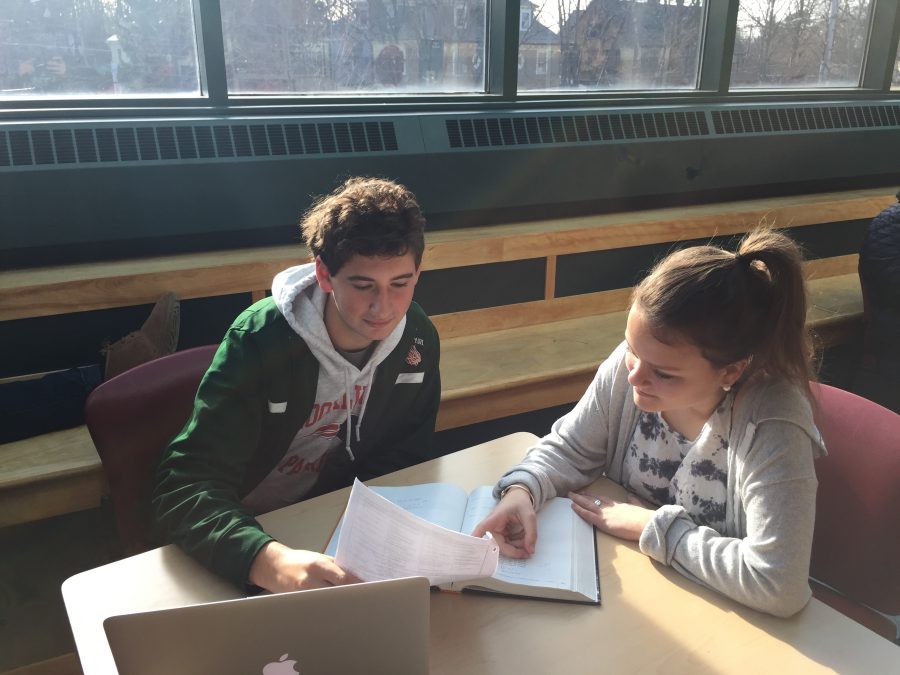
After rebooting the peer tutoring system last fall, in late March, Upper School Senate Representatives Jack Donnelly ’18 and Geo Echebiri ’18 launched a web site to help manage scheduling.
Since then, Echebiri says he has seen a “slight but noticeable uptick” in the program’s usage.
“Still, our goal this year was to have something firmly established before summer,” he says. “That way, upon returning to Brimmer in the fall, students will be certain that they can plan for a successful year ahead with a functional and helpful resource in mind.”
The site includes information about 16 tutors, including what qualifies them to help in a certain subject. It also features a user-friendly form to schedule a session with a preferred peer, who must receive a teacher letter of recommendation to tutor in a specific subject.

“Students who are receiving peer tutoring help don’t necessarily need long term help,” Donnelly says, adding that the program does not intend to substitute or replace tutoring services. “They are looking for short term assistance on some concepts that they don’t understand.”
Echebiri also says the he expects peer tutoring to “really take off next year,” when incoming freshman can take advantage of a more established peer tutoring system. Meanwhile, those seeking help aren’t the only ones benefiting from the interaction.
Genevieve Collins ’18, who tutors in Mandarin and the humanities, says, “Tutoring confirms my own knowledge in a concept or topic. When you’re trying to cement learning, it helps trying to explain your understanding to somebody else.”
This is not the first time that students have tried to launch a sustainable peer tutoring program.
In 2014, Upper School Senate representative Hallie Black ’14 attempted to start a peer-tutoring program. But with only a few tutors offering assistance in math and science, her effort lacked student support. In 2015, Upper School Senate President AJ Naddaff ’15 attempted to revamp the program once again.
Coming soon, the site will feature a “Class Study Tips” page, which offers students advice on how to succeed in certain disciplines, as well as with certain teachers.
“This section will be most beneficial for new students, who are unfamiliar with the subject and instructor,” says Echebiri, adding that students will also be able to offer feedback online about their peer tutoring experience.























































